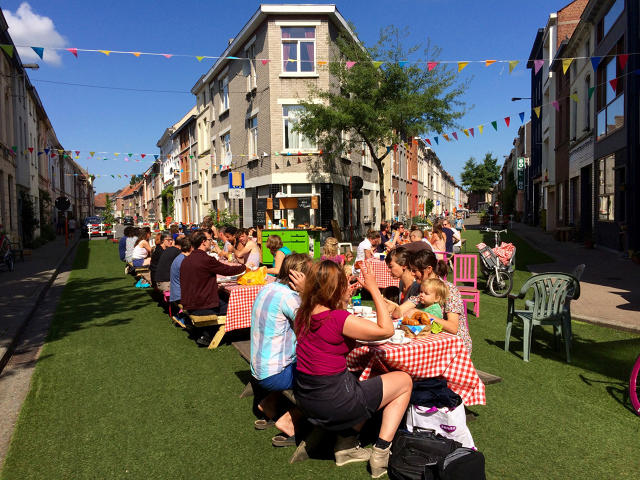South Africa’s largest city, Johannesburg, announced that it will be organizing the world’s second-ever ‘EcoMobility World Festival’ in October 2015. The festival is a month-long car-free city district event which is supposed to help visualize an ecomobile future for residents and visitors in Johannesburg.
“We want to close off certain streets in Sandton, our second largest Central Business District to car traffic and instead use these lanes for public transport, walking, cycling and other forms of EcoMobility during the entire Transport Month in October”, the Executive Mayor of the City of Johannesburg, Parks Tau said last year.
With Africa rated as one of the most vulnerable continents to climate change, events like the Ecomobility festival could be what the continent – and the world at large – needs to reduce emissions that threaten the environment.
The first EcoMobility festival took place in 2013 in the South Korean city of Suwon. Residents of the neighbourhood collectively decided to get rid of every car for one month as a way to help the city reduce carbon emissions by helping citizens get an intuitive sense of what that future could look like. The masterminds of the event, The Urban Idea, explained how hard and stressful the planning period was. “When planning began, the neighbourhood was filled with cars, and people typically drove everywhere, even pulling up on sidewalks to park in front of shops while they ran errands. Most of the people could not envision how their neighbourhood would be car-free,” Konrad Otto-Zimmerman, creative director at The Urban Idea said. “They simply said it couldn’t work.”
However, two years of planning and countless town hall meetings later, 1,500 cars were moved out of the neighbourhood to parking lots elsewhere in the city. The city handed out 400 temporary bikes and electric scooters to neighbours, and set up a bike school to teach the many residents how to ride. Mail was delivered by electric vehicles and shuttle buses ran every 15 minutes to take people to their cars.

By the time the festival was over, residents of the city interacted better, exercised more regularly and were more actively involved in the community than they were before the festival. The town even requested that permanent changes be made to the use of cars in the city after the festival.
A similar experiment took place in Belgium when 22 streets were turned into “Living Streets” for 10 weeks when the city of Ghent asked a group of citizens to imagine a sustainable future for the city.

On the South Africa project, Otto-Zimmerman commented, “It takes an open-minded mayor who likes innovation and provocation, and has a greener vision of a city… and someone who has enough influence and supporters to go through the exercise, because it’s in principle controversial.”
The EcoMobility World Festival in Johannesburg will mobilize and raise local and international support for ecomobile alternatives to fossil-fuel transport. The festival will showcase the new Rea Vaya bus rapid transport scheme and public transport-, cycling- and walking-friendly infrastructure that the city is constructing in Sandton.
Pulling off an EcoMobility Festival is not a cheap venture. The Suwon Project cost over $10 million dollars to produce, although it was reported that a large portion of the budget went into repairing streets that were already in need of renovation.
The Mayor of Johannesburg notes, “We want to show residents and visitors that an ecomobile future is possible and that public transport, walking and cycling can be accessible, safe, attractive and cool!” Mayor Parks Tau also ensured that the city will provide alternative transport in and out of Sandton during this month. The city will host discussions, fun runs, cycle rides and other events to attract people to Sandton to experience the car-free environment.
The Urban Idea says they are planning to organize an EcoMobility World Festival every year in different city on another continent. How many countries or communities – African or worldwide – will be willing to sacrifice the comfort of their cars for a month of “healthy living”?








